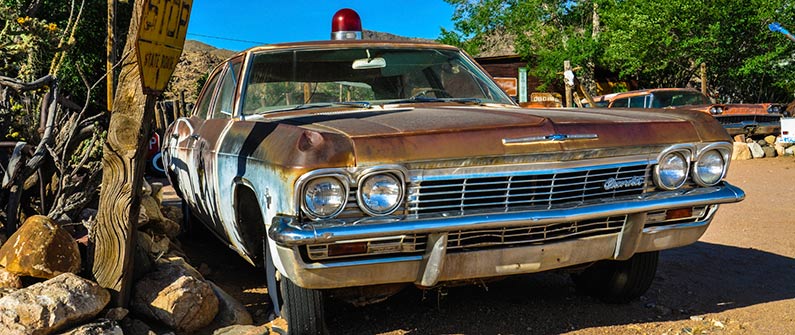
Living near the beach comes with many perks, from easy access to sun and sand, to the refreshing tang of saltwater in the air. Unfortunately, there are a few drawbacks to calling this tropical paradise home. The elements that are unique to this locale are quite harsh on vehicles. Though you may not notice it at first, beach living can take a toll on your Chevy.
Exterior Rust Problems
The salty sea breeze feels refreshing, but it can wreak havoc on your car. Salt exposure accelerates rust formation. If you’re within 20 miles of the beach, your vehicle is probably exposed to sea spray in the air on a regular basis. The closer your car is to the sea, the quicker rust problems will form. Rust damage typically shows up on the hood and trunk first, so keep a keen eye on these trouble spots.
The best way to prevent rust is to stop salt accumulation on your car. Keep your vehicle covered as often as possible, particularly when you’re parking it near the ocean. Regular car washes will help rinse away salt and prevent long-term accumulation. Finish each car wash with a generous layer of wax as an added protectant. Living near the beach, you’ll probably need more frequent paint jobs as well.
Internal Rusting
The same conditions that cause rust to form on the exterior of your car will have a similar effect on nuts, bolts, and your braking system. Since you can’t see these areas as readily, you may not realize the extent of the damage until you have a serious problem. If you live near the beach, simply assume that internal rusting will be an issue for your Chevy, and act accordingly.
Schedule regular check-ups to have your car inspected for rust. This will help you spot particularly troublesome areas before you’re facing a major repair job. If you drive on the beach, exposing the underbody of the car to salt and sand, rinse it off with a hose as soon as you get home.
Sun Damage
Florida is known as the sunshine state for good reason. Your Chevy will see plenty of hot sunny weather if you live near the beach. While this can feel great to you, it’s not as good for your car. Sun causes the pores in your car’s paint to increase. This allows it to absorb more saltwater, further increasing corrosion on your vehicle.
Protect the surface of your car from the sun as much as possible. If you don’t have a garage, consider investing in a carport. Park in the shade when you’re running errands or at work. Always opt for a parking garage when you can, and stay away from those uncovered parking spots on the roof.
Impurities on the Finish
If you live near Florida’s beaches, you’re exposed to a nearly endless cycle of dewy mornings, sunbaked days, and rainy afternoons. These weather conditions are particularly harsh on the finish of your Chevy. As with rust, the best remedy is to wash your car more frequently. However, you can take this a step further when you’re battling damage caused by airborne pollutants, baked-on bug remains, and damage from blowing sand and dirt.
After washing your vehicle, run a hand over the surface and feel for any rough spots. If you encounter these impurities, it’s time to consider claying your car. Clay bars are a time-tested solution that professionals have turned to for years. You apply the bar along with a spray-on lubricant. The clay effectively removes small impurities that you can feel more than see, giving your car a smooth surface and like-new sheen.
Internal Sand Damage
Though salt damage is more prevalent than sand, you may experience some trouble with sand if you drive on the beach often or perhaps park on an unpaved and sandy area at home. If sand works its way into the internal parts of the car, you may experience damage to the engine belt, brake pads, and calipers. If sand gets into car sensors, it can cause them to give off false readings.
Keep your car away from sand as much as possible to prevent these types of problems. As with salt, you can also counteract some of the hazards of sand by scheduling regular tune-ups for your car, where your mechanic will have a chance to spot potential issues before they’ve developed into serious problems.
When you’re aware of how the beach impacts your Chevy, you can take preventive measures to keep your car safe and extend its lifespan in this climate.





